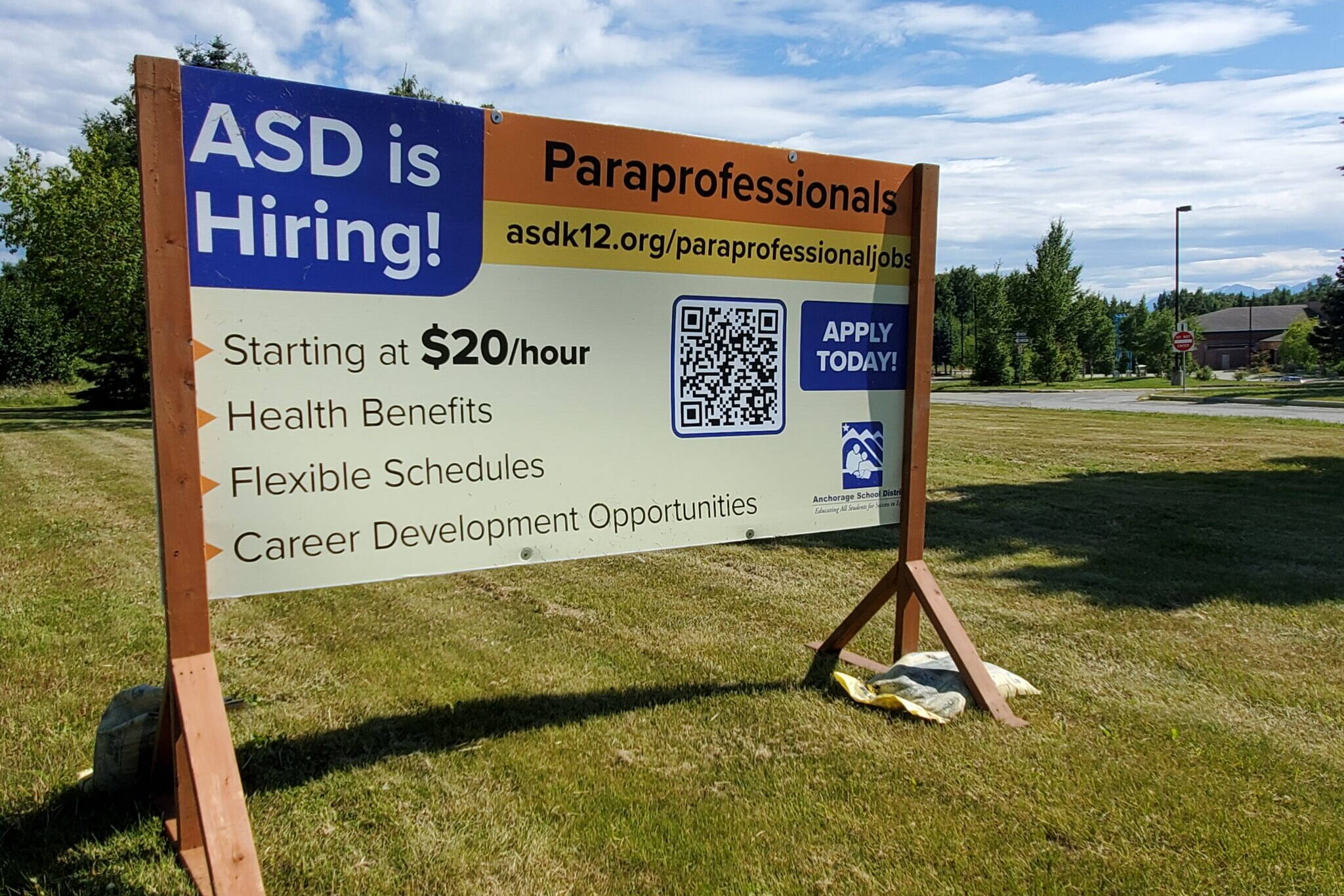A bill aimed at attracting and keeping quality teachers in Alaska classrooms became law on Monday without Gov. Mike Dunleavy’s signature.
The law’s changes to current education policy are threefold: It eliminates a state limit on experience-based compensation for teachers, allows retired teachers to serve as long-term substitutes and provides financial incentives for current teachers to seek certification from the National Board for Professional Teaching Standards.
Rep. Rebecca Himschoot, I-Sitka and a former teacher, sponsored the bill, which grew in the amendment process to include two other proposals written by former teachers. Himschoot said it is an example of educator-led legislation that can make meaningful change in Alaska’s schools.
“This is exactly the kind of targeted and strategic stuff we need to be doing,” she said on Tuesday. “Every time we can find a measure, no matter how small it is, and put it together with other measures, collectively, we’re going to strengthen our education system in Alaska.”
Himschoot wrote the part of the law that will allow out-of-state teachers interested in Alaska careers to be compensated for their previous experience at the discretion of the school district. She described it as a “recruiting tool” for districts. Previously, districts could compensate teachers for only up to six years of their previous, out-of-state experience.
“If you have 10 years of experience, and you’re only allowed to bring six years of experience with you in terms of your salary placement, then you might consider going somewhere else, or you might leave the profession entirely,” she said.
Himschoot said she picked up the idea from reading recommendations from Dunleavy’s Teacher Recruitment and Retention Working Group.
Rep. Maxine Dibert, D-Fairbanks, authored part of the law that allows retired teachers to serve as long-term substitutes for up to 165 days with licensure from the state.
“Schools right now are really having a very difficult time finding teachers to fill classrooms, and this was one little effort to incentivize retired teachers to come back and help,” she said.
Dibert said that not all the teaching positions were filled when school started in Fairbanks, so she saw her retired colleagues filling on the first day as long-term substitutes until the districts find full-time teachers.
She added that having retired teachers in classrooms has benefits beyond simply filling the position with an experienced professional: They can be mentors to less experienced teachers. Dibert said she still remembers how a retired teacher named Debbie Richards gave her classroom management tips, recommended articles and helped with classroom tasks.
Also adopted in law is a proposal from Sen. Jesse Bjorkman, R-Kenai, to incentivize Alaska teachers to pursue certification from the National Board for Professional Teaching Standards, a merit-based process that denotes excellence in teaching.
“When teachers are national board-certified they are more effective teachers, and they are proven to be better at their craft — especially teaching reading to young kids, and that’s where the learning begins,” he said.
Under the new law, teachers who achieve the certification will receive a $5,000 yearly stipend and teachers who seek the certification may have their certification costs covered by the school district or the state’s Department of Education and Early Development.
Dunleavy allowed the bill to become law without his signature. His administration did not reply to a request for comment. In March, Dunleavy proposed teacher recruitment and retention legislation that would award direct payments to teachers in the form of yearly bonuses for three years. It was one of the priorities he asked legislators to adopt in exchange for allowing the education bill lawmakers approved in February to become law. Lawmakers did not adopt that proposal, or others from the governor, and Dunleavy vetoed the bill, which contained a substantial increase to the per-student funding formula.
All three lawmakers were excited to see their legislation become law, but said they had more work to do to improve education in the state.
“It isn’t a silver bullet by any means,” Bjorkman said. Dibert called it a “small step forward.”
After an interview, Himschoot texted another thought: “HB230 is great for supporting teacher quality,” it read, “but the best thing we can do is increase the number of homegrown Alaska teachers.”
• Claire Stremple is a reporter based in Juneau who got her start in public radio at KHNS in Haines, and then on the health and environment beat at KTOO in Juneau. This article originally appeared online at alaskabeacon.com. Alaska Beacon, an affiliate of States Newsroom, is an independent, nonpartisan news organization focused on connecting Alaskans to their state government.

